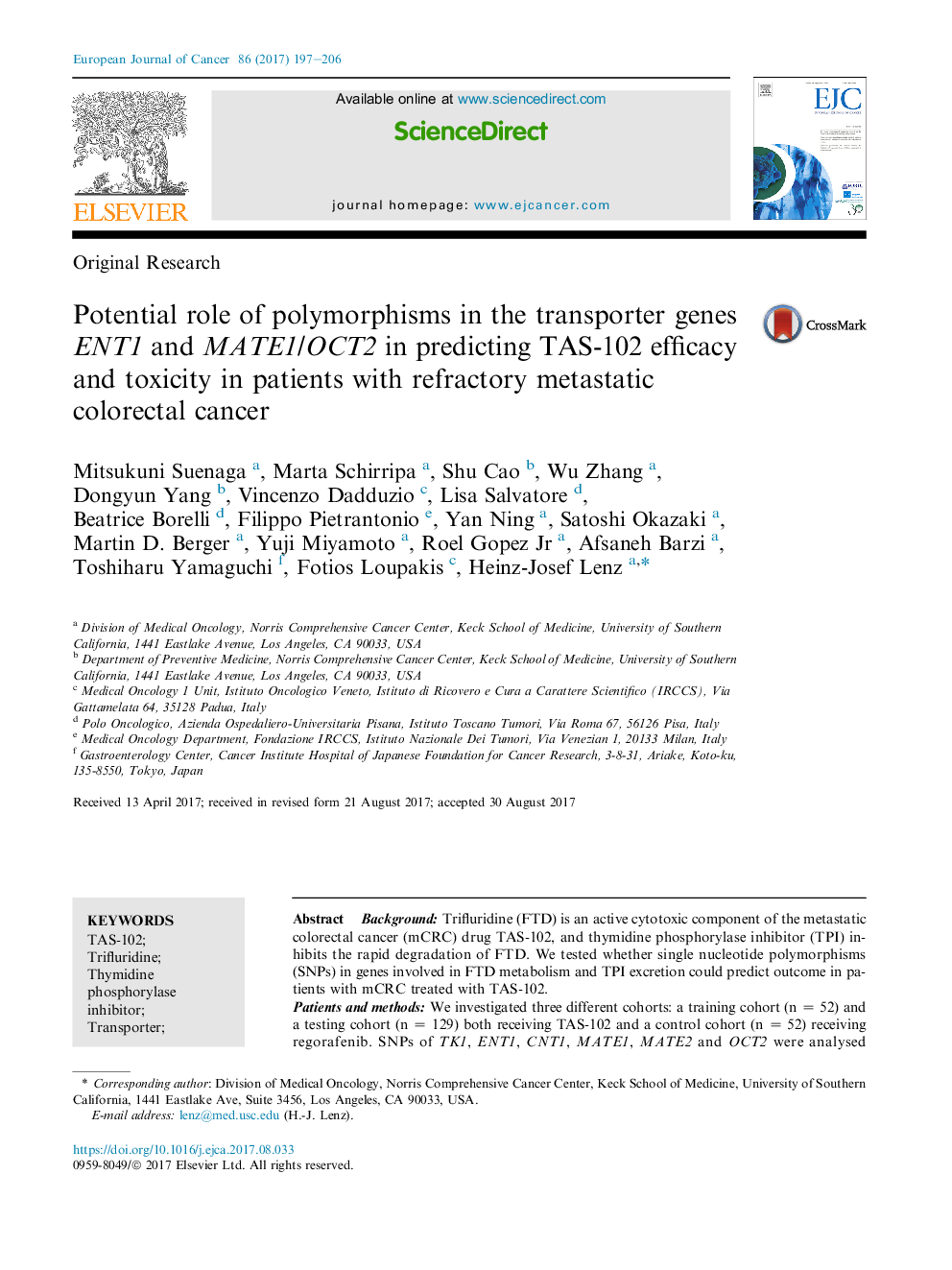| Article ID | Journal | Published Year | Pages | File Type |
|---|---|---|---|---|
| 5526164 | European Journal of Cancer | 2017 | 10 Pages |
â¢Trifluridine (FTD) is a cytotoxic component of the metastatic colorectal cancer drug TAS-102.â¢FTD rapid degradation is inhibited by thymidine phosphorylase inhibitor (TPI).â¢Germline polymorphisms of the nucleoside transporter ENT1 regulate the FTD influx/efflux.â¢Transporters multidrug and toxin extrusion 1 (MATE1) and organic cation transporter 2 (OCT2) are involved in TPI excretion.â¢Combined polymorphisms of transporter genes ENT1, MATE1 and OCT2 classify the clinical outcome.
BackgroundTrifluridine (FTD) is an active cytotoxic component of the metastatic colorectal cancer (mCRC) drug TAS-102, and thymidine phosphorylase inhibitor (TPI) inhibits the rapid degradation of FTD. We tested whether single nucleotide polymorphisms (SNPs) in genes involved in FTD metabolism and TPI excretion could predict outcome in patients with mCRC treated with TAS-102.Patients and methodsWe investigated three different cohorts: a training cohort (n = 52) and a testing cohort (n = 129) both receiving TAS-102 and a control cohort (n = 52) receiving regorafenib. SNPs of TK1, ENT1, CNT1, MATE1, MATE2 and OCT2 were analysed by polymerase chain reaction-based direct DNA sequencing.ResultsIn the training cohort, patients with any ENT1 rs760370 G allele had a significantly longer progression-free survival (PFS; 3.5 versus 2.1 months, respectively, hazard ratio [HR] 0.44, P = 0.004) and overall survival (OS; 8.7 versus 5.3 months, respectively, HR 0.27, P = 0.003) than the A/A genotype. These findings were validated in the testing cohort (P = 0.021 and 0.009 for PFS and OS, respectively). In addition, the combination of ENT1 rs760370, MATE1 rs2289669 and OCT2 rs316019 SNPs significantly stratified patients with the risk of PFS and OS in both cohorts (P < 0.001 for PFS and OS in the training cohort; P = 0.053 and 0.025 for PFS and OS, respectively, in the testing cohort). No significant differences were observed in the control group.ConclusionsThe combination of ENT1, MATE1 and OCT2 SNPs may serve as a predictive and prognostic marker in mCRC patients treated with TAS-102.
